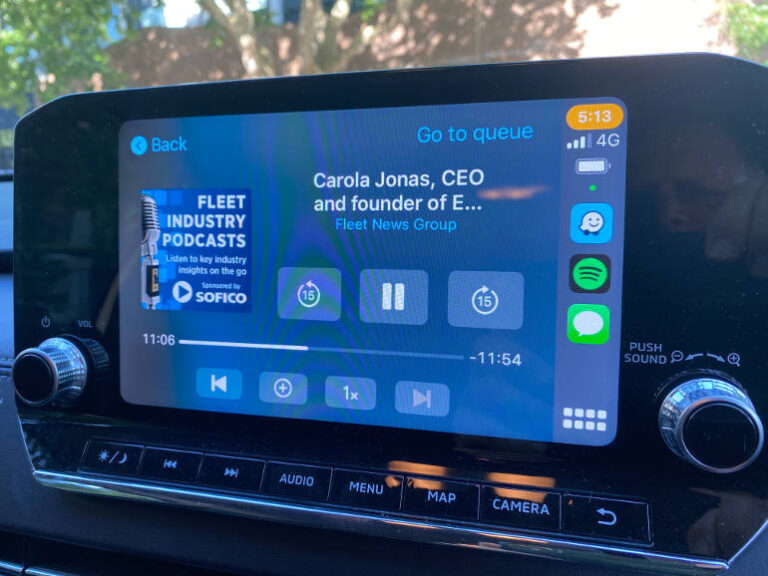Carola Jonas, CEO and founder of Everty, a company that offers a software platform to help companies operate and manage their EV charging infrastructure, talked to Fleet News Group podcast, our series that airs regularly on Spotify and Apple Podcasts.
She talked about the positive impact the removal of the fringe benefit tax on certain-priced electric vehicles will have. She also forecast the disparity will widen between low-cost charging of an EV compared with filling a car with petrol or diesel fuel.
Jonas founded Everty five years ago when, she said, the cost of charging an electric vehicle was about one-third of the cost of refuelling a traditional car or light commercial vehicle with petrol or diesel. Today she estimates it’s around one-quarter or one-fifth because fossil-fuel-based fuel has become more expensive.
“Australia is not immune from global shocks. So when when a war in the Ukraine started, obviously our petrol prices went up, along with all other markets in the world. And the government fix, temporarily, was a fuel excise cut, which has now been removed,” said Jonas.
She forecast that gap will widen further as EVs become more popular and eventually overtake petrol and diesel fuelled cars.
“Then we need like less fuel stations and obviously there’s less demand for petrol then the cost of petrol per litre will have to go up for the remaining petrol cars.”
Meanwhile, news tax rules will make EVs cheaper and their whole-of-life cost more favourable compared with internal combustion engined vehicles.
We recorded the podcast before the Australian Federal Government passed the Treasury Laws Amendment (Electric Car Discount) Bill in late November. But we knew it was coming, as the Government had flagged incentivising electric vehicle adoption as a priority on their agenda early in their rule, and again in their first budget in August.
Jonas estimated the removal of the FBT on EVs priced at $50,000 will save about $9000 for a business, and about $4700 for an employee taking advantage of an employer-sponsored salary-sacrifice-scheme.
“That is a massive difference. I assume it will incentivise a lot of individuals to buy electric vehicles and get novated leases,” said Jonas. “But also for companies with that tax deduction, the true cost of ownership becomes a lot less expensive.” Certainly, it makes EVs a lot more attractive, she said.
We also talked about Everty’s submission to the Federal Government’s callout for its Electric Vehicle Strategy. Submissions closed Oct. 31 and the Government is expected to reveal its strategy some time in 2023.
Jonas said Everty has called for introducing aggressive targets for EV sales.
“We say there should be at least two million electric vehicles in Australia by 2027,” said Jonas. She said new passenger vehicle sales should be 80 percent electric by 2030.
“We understand that with trucks and vans and buses that market is a bit slow to adopt — not as functional technology is available — but even there we think there should be a 50 percent [goal],” said Jonas.
Jonas admitted the targets appear ambitious, but she said government incentive practices in other countries show just how fast things can change. She cited Germany where EVs as a proportion of new car sales were about 3 percent pre COVID, and since the government put incentives in place, the share of EVs as a proportion of new car sales has swollen to 10 percent.
“These markets are moving a lot faster than anything that we’ve seen in the automotive industry before,” said Jonas.






